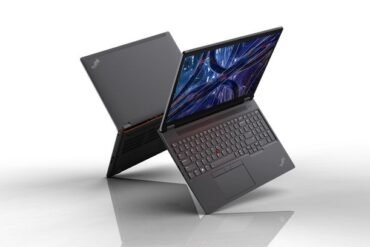Understanding PSU Efficiency Ratings: 80 PLUS Explained
Table of Contents
- The Importance of Efficiency: Why PSU Efficiency Matters
- Demystifying 80 PLUS: Understanding PSU Efficiency Ratings
- Types of 80 PLUS Certifications: A Breakdown of PSU Efficiency Levels
- Benefits of Choosing a High-Efficiency PSU: Saving Energy and Reducing Costs
- Factors to Consider: Choosing the Right PSU for Your Needs
The Importance of Efficiency: Why PSU Efficiency Matters
When it comes to choosing a power supply unit (PSU) for your computer system, one of the key factors to consider is its efficiency rating. PSU efficiency refers to how effectively the power supply converts AC power from your electrical outlet into the DC power required by your computer components. Understanding why PSU efficiency matters is essential for both energy savings and overall system performance.
Here are some important reasons why PSU efficiency is crucial:
- Energy savings: An efficient PSU can significantly reduce energy consumption and lower your electricity bills. Higher efficiency means less power is wasted as heat during the conversion process. The 80 PLUS rating system, which certifies PSUs based on their efficiency, provides various levels of efficiency, ranging from 80% to over 90%. Choosing a PSU with a higher efficiency rating can lead to substantial long-term savings.
- Environmental impact: Opting for an efficient PSU not only benefits your wallet but also helps reduce your carbon footprint. By reducing energy waste, you contribute to a more sustainable environment and contribute to the global effort to combat climate change.
- Stable power delivery: A high-quality, efficient PSU ensures a stable and reliable power supply to your computer components. This is particularly important for demanding tasks such as gaming or running resource-intensive applications. An inefficient PSU may struggle to meet the power demands of your system, leading to instability, crashes, or even hardware damage.
- Longevity of components: Efficient PSUs generate less heat, which can prolong the lifespan of your computer components. Excessive heat can cause premature aging and decrease the performance of sensitive electronics. By choosing an efficient PSU, you help maintain a cooler operating environment, which is crucial for the longevity and reliability of your system.
In summary, PSU efficiency plays a significant role in energy savings, environmental impact, stable power delivery, and the longevity of your computer components. When selecting a PSU, consider its efficiency rating and opt for a reputable brand with a higher 80 PLUS certification level to ensure optimal performance and cost-effectiveness.
Demystifying 80 PLUS: Understanding PSU Efficiency Ratings
When it comes to purchasing a power supply unit (PSU) for your computer, one of the key factors to consider is its efficiency rating. The 80 PLUS certification is a widely recognized standard that helps consumers identify power supplies that meet certain efficiency requirements. Understanding the different levels of 80 PLUS ratings can be crucial in making an informed decision for your system’s power needs.
The 80 PLUS certification program was introduced by Ecos Consulting in 2004 to promote energy-efficient power supply units. The program tests and certifies PSUs based on their efficiency at different load levels, ranging from 20% to 100% of their maximum capacity. The higher the efficiency, the less power is wasted as heat, resulting in lower electricity bills and reduced environmental impact.
There are several different levels of 80 PLUS ratings, each representing a specific efficiency level. The basic certification is 80 PLUS, which requires the PSU to have a minimum efficiency of 80% at 20%, 50%, and 100% load. Beyond that, there are higher levels of certification, including 80 PLUS Bronze, Silver, Gold, Platinum, and Titanium, each requiring higher efficiency at various load levels.
Here is a breakdown of the efficiency requirements for each 80 PLUS certification:
- 80 PLUS: 80% efficiency at 20%, 50%, and 100% load
- 80 PLUS Bronze: 82% efficiency at 20%, 85% efficiency at 50%, and 82% efficiency at 100% load
- 80 PLUS Silver: 85% efficiency at 20%, 88% efficiency at 50%, and 85% efficiency at 100% load
- 80 PLUS Gold: 87% efficiency at 20%, 90% efficiency at 50%, and 87% efficiency at 100% load
- 80 PLUS Platinum: 90% efficiency at 20%, 92% efficiency at 50%, and 89% efficiency at 100% load
- 80 PLUS Titanium: 90% efficiency at 20%, 94% efficiency at 50%, and 90% efficiency at 100% load
It’s important to note that higher efficiency levels usually come with a higher price tag. While a higher-rated PSU may be more expensive upfront, the energy savings over time can offset the initial investment. Additionally, PSUs with higher efficiency ratings often come with better build quality and more advanced features.
When selecting a power supply unit, it’s crucial to consider your system’s power requirements and choose an appropriate 80 PLUS rating. A higher-rated PSU is recommended for power-hungry systems, such as gaming rigs or workstations, while a lower-rated PSU may suffice for basic office or home use.
By understanding the different 80 PLUS efficiency ratings, consumers can make more informed decisions when purchasing a power supply unit. Whether you prioritize energy efficiency, cost-effectiveness, or system performance, the 80 PLUS certification provides a valuable benchmark to guide your PSU selection process.
Types of 80 PLUS Certifications: A Breakdown of PSU Efficiency Levels
When it comes to power supply units (PSUs), efficiency is a crucial factor to consider. The 80 PLUS certification program was introduced to ensure that PSUs meet certain criteria for energy efficiency. This program categorizes PSUs into various efficiency levels based on their performance. Here is a breakdown of the different types of 80 PLUS certifications:
- 80 PLUS: This is the baseline certification level, requiring PSUs to have a minimum efficiency of 80% at 20%, 50%, and 100% loads.
- 80 PLUS Bronze: PSUs with this certification must maintain at least 82% efficiency at 20% and 100% loads, and 85% efficiency at 50% load.
- 80 PLUS Silver: PSUs in this category offer higher efficiency than the Bronze level, with a minimum requirement of 85% efficiency at 20% and 100% loads, and 88% efficiency at 50% load.
- 80 PLUS Gold: These PSUs are even more efficient, with a minimum efficiency of 87% at 20% and 100% loads, and 90% efficiency at 50% load.
- 80 PLUS Platinum: PSUs at this level are highly efficient, with a minimum efficiency of 90% at 20% and 100% loads, and 92% efficiency at 50% load.
- 80 PLUS Titanium: This is the highest level of certification, representing PSUs with exceptional efficiency. They must achieve at least 90% efficiency at 20% and 100% loads, and 94% efficiency at 50% load.
It’s important to note that higher efficiency levels typically come at a higher cost. However, investing in a PSU with a higher 80 PLUS certification can result in long-term energy savings and a more environmentally friendly system.
When choosing a PSU, it’s crucial to consider your specific needs and the power requirements of your components. While a higher efficiency PSU may be ideal for energy-conscious users or those running power-hungry systems, a lower efficiency PSU may be perfectly suitable for less demanding setups.
Understanding the different types of 80 PLUS certifications allows you to make an informed decision when selecting a PSU that best suits your needs. By choosing a PSU with an appropriate efficiency level, you can ensure optimal power usage and minimize energy wastage.
Benefits of Choosing a High-Efficiency PSU: Saving Energy and Reducing Costs
When it comes to building or upgrading a computer, choosing the right power supply unit (PSU) is crucial. One important factor to consider is the PSU’s efficiency rating, commonly known as the 80 PLUS rating. Opting for a high-efficiency PSU can bring several benefits, including significant energy savings and reduced costs in the long run.
Here are some key advantages of choosing a high-efficiency PSU:
- Energy Efficiency: High-efficiency PSUs convert more of the electricity they draw from the wall outlet into usable power for your computer components. This means less energy is wasted as heat, resulting in lower electricity bills and a reduced environmental impact. The 80 PLUS rating system ensures that PSUs meet specific efficiency standards, with higher ratings indicating greater efficiency.
- Lower Heat Generation: Due to their improved efficiency, high-efficiency PSUs produce less heat compared to lower-rated models. This not only helps in maintaining lower operating temperatures for your computer components but also contributes to a quieter and more stable system overall.
- Longer Lifespan: High-efficiency PSUs are built with better components and undergo rigorous testing to meet the efficiency standards. As a result, they tend to have a longer lifespan than less efficient models. By choosing a high-quality PSU, you can minimize the risk of power-related issues and ensure a reliable and stable power supply to your computer components.
- Protection for Your Components: A high-efficiency PSU often includes advanced protection features, such as over-voltage, under-voltage, and over-current protection. These safeguards can help prevent damage to your computer components in case of power fluctuations or surges, saving you from potential repair or replacement costs.
- Compatibility with Energy-Saving Technologies: High-efficiency PSUs are designed to work seamlessly with energy-saving features found in modern computer systems. These features include power management modes, sleep states, and intelligent power distribution, which can further optimize energy consumption and reduce costs.
When choosing a high-efficiency PSU, it’s important to consider your computer’s power requirements and select a PSU with an appropriate wattage rating. Additionally, make sure to check the specific efficiency rating (such as 80 PLUS Bronze, Silver, Gold, Platinum, or Titanium) to ensure it meets your needs and budget.
In summary, opting for a high-efficiency PSU not only saves energy and reduces electricity costs but also provides a more reliable and stable power supply for your computer components. It’s a worthwhile investment that can benefit both your wallet and the environment in the long term.
Factors to Consider: Choosing the Right PSU for Your Needs
When it comes to selecting the right power supply unit (PSU) for your computer, there are several factors you should consider to ensure compatibility and optimal performance. Here are some key considerations to keep in mind:
- Power requirements: Determine the power needs of your computer components. Consider the wattage required by your CPU, graphics card, and other hardware. It’s important to choose a PSU that can provide sufficient power to support your system.
- Efficiency rating: Look for PSUs with higher efficiency ratings, such as the 80 PLUS certification. This rating indicates how efficiently the PSU converts AC power from your wall outlet into DC power for your computer. Higher efficiency means less wasted energy and lower electricity bills.
- Modularity: Decide whether you need a modular or non-modular PSU. Modular PSUs allow you to connect only the cables you need, reducing cable clutter and improving airflow. Non-modular PSUs come with fixed cables, which may be more cost-effective for simpler setups.
- Form factor: Ensure that the PSU you choose matches the form factor of your computer case. Common form factors include ATX, MicroATX, and Mini-ITX. Check your case’s specifications to determine the required PSU size.
- Brand and reliability: Consider reputable PSU brands known for their reliability and quality. Look for customer reviews and ratings to ensure you’re choosing a reliable PSU that won’t fail prematurely.
- Connectors and cables: Check the PSU’s connectors and cables to ensure they are compatible with your components. Consider the number and type of connectors required for your motherboard, graphics card, storage devices, and other peripherals.
By considering these factors, you can choose a PSU that meets your power requirements, offers high efficiency, fits your case, and provides reliable performance. Remember to research and compare different models to find the best PSU for your specific needs and budget. Investing in a quality PSU will not only ensure stable power delivery to your components but also contribute to the overall longevity and efficiency of your computer system.



























